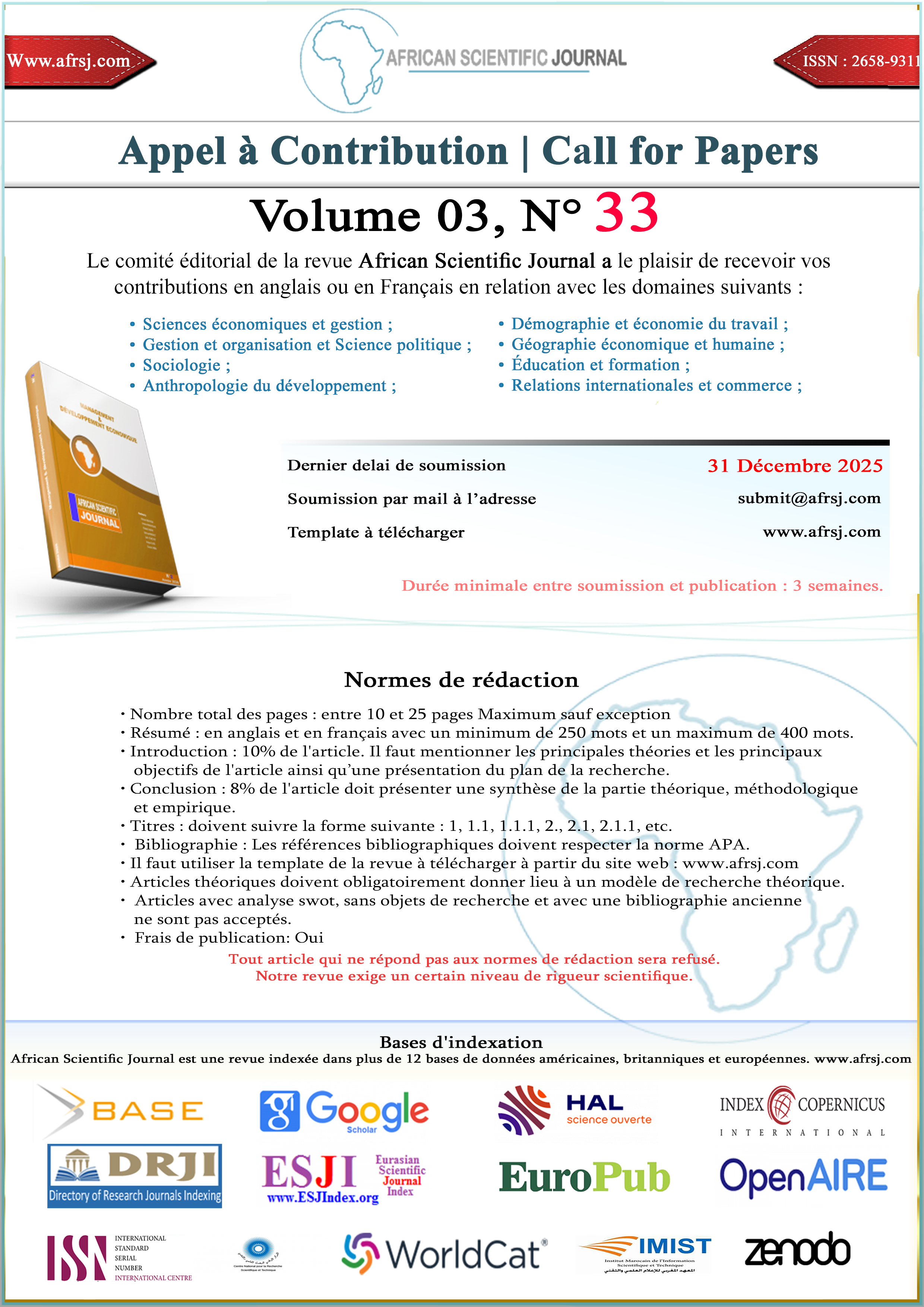La diplomatie économique au service de la réussite de la ZLECAf: De l’ambition à la réalité
DOI :
https://doi.org/10.5281/zenodo.17500297Résumé
Résumé :
En mars 2018, les pays Membres de l’Union africain ont signé un accord qui se voient comme porteur d’espoir pour l’ensemble des pays africains et qui s’inscrit comme un projet phare de l’agenda de 2063 pour une vision d’une Afrique intégrée, connectée et économiquement solide. Cependant sept ans après sa signature, la mise en œuvre de la ZLECAF est toujours lente, et freinée par un contexte mondial incertain marqué par des crises successives, ainsi, les défis structurels du continent africain continuent à retarder la pleine concrétisation de cette intégration régionale. D’autre part, la fragmentation observée lors des négociations internationales affaiblit la portée de l’action africaine et limite l’expression de son potentiel économique. Dès lors, la diplomatie économique se présente comme un outil stratégique de première importance, visant à doter l’Afrique d’une représentation unifiée dans les négociations et à consolider sa position face aux grandes puissances Dans ce contexte, la diplomatie économique apparaît comme un instrument stratégique de coordination entre les États africains, capable de renforcer le soutien politique et économique nécessaire. En s’appuyant sur une approche théorique, cet article analyse le rôle de la diplomatie économique dans la consolidation de la ZLECAf et dans la construction d’une voix africaine unifiée sur la scène internationale.
Mots clés : diplomatie économique, ZLECAF, Afrique, intégration régionale, commerce international.
Abstract :
In March 2018, the Member States of the African Union signed an agreement regarded as a beacon of hope for all African nations and as a flagship initiative of the Agenda 2063, which envisions an integrated, connected, and economically strong Africa. However, seven years after its signing, the implementation of the African Continental Free Trade Area (AfCFTA) remains slow, hindered by an uncertain global environment marked by successive crises. Consequently, the structural challenges facing the African continent continue to delay the full achievement of regional integration. Moreover, the fragmentation observed in international negotiations weakens Africa’s collective influence and limits the expression of its economic potential. In this context, economic diplomacy emerges as a strategic tool of paramount importance, aimed at ensuring a unified African representation in global negotiations and strengthening the continent’s position in relation to major powers. Accordingly, economic diplomacy appears as a coordinating mechanism among African states, capable of reinforcing the political and economic support necessary for the success of the AfCFTA. Drawing on a theoretical approach, this article analyzes the role of economic diplomacy in consolidating the AfCFTA and in shaping a unified African voice on the international stage.
Keywords : economic diplomacy, AFCFTA, Africa, regional integration, international trade.
Téléchargements
Publiée
Comment citer
Numéro
Rubrique
Licence
(c) Tous droits réservés African Scientific Journal 2025

Ce travail est disponible sous licence Creative Commons Attribution - Pas d'Utilisation Commerciale - Pas de Modification 4.0 International.




















